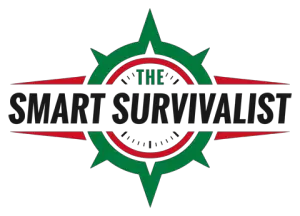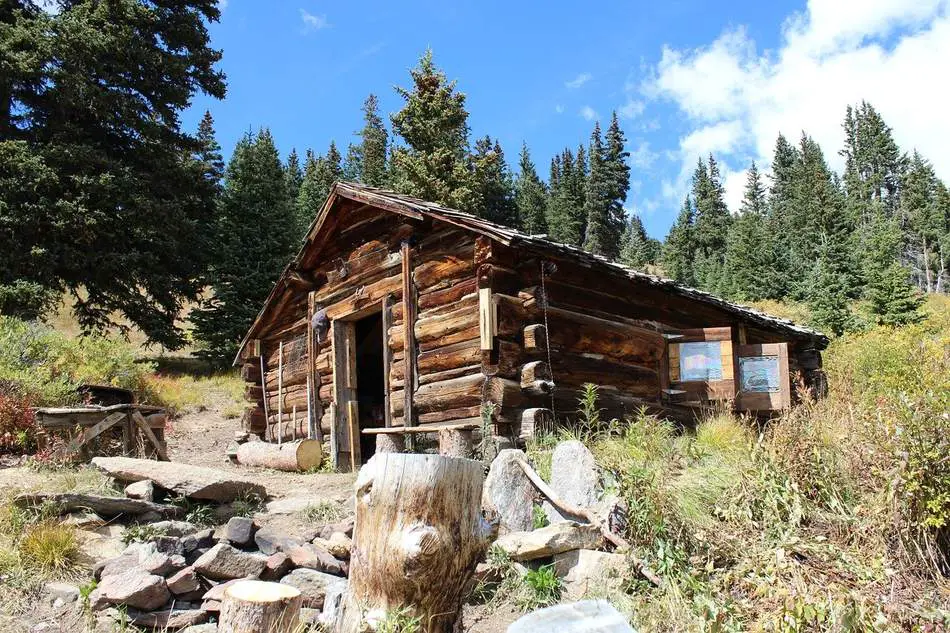Living off the gird in the USA is definitely not a new phenomenon. For decades, people strived to established off-grid homesteads, which were clean, self-efficient and independent of the country’s power grid. However, more recent events ignited a renewed interest in this type of a lifestyle.
Social and economic instabilities, riots, pollution, COVID-19 and other outbreaks – all of this drove people to establish a home away from the urban centers. But before people adopted the new lifestyle, they started asking very important questions regarding the off-grid life’s legality. And after a thorough research, I found the exact answer.
Is it illegal to live off the grid in the United States of America? The brief answer is that it’s completely legal. As a matter of fact, several states encourage to live off the grid. Nonetheless, you must follow local building codes and tax laws. Furthermore, you must have your own address. ??
I am certain that a short answer cannot fully satisfy you. Which is why I dug deeper into this issue and gathered all the essential facts and details. After reading them, you will be much more knowledgeable and more prepared for the off grid living in the USA.
Is It Illegal to Live Off the Grid in the United States?
From time to time you might hear rumor or see a news piece about someone being fined or prohibited from living in an off-the-grid home. However, in most of these cases, the reason is not the off grid living itself. To live off the grid is perfectly legal, it goes hand in hand with the American principle of personal freedom. If someone had been prosecuted for living off the grid, it’s usually for one or more of the following reasons.
Failing to Pay Taxes
This is quite simple and basic: every able citizen must pay taxes. If you own a property, then you have to pay property taxes. Your off-the-grid lot, as secluded and remote as it may be, must pay taxes according to the regulations of the state it’s in.
If you are producing crops, livestock, providing services, crafting items – you must pay taxes as well. Every income is taxable. Naturally, you can check with an accountant whether you are illegible for tax deduction.
To put it bluntly – don’t play games with the IRS. Live off the grid freely, without worrying about the taxman’s retribution.
Squatting
I mentioned property earlier. People who live off the grid usually buy a land and built their own house. The prices vary between states, I covered this topic in the article about the cost of living off the grid.
However, some folks have an idea that being off the grid should be something borderline criminal. They squat in nearly abandoned buildings and take over lots that do not belong to them. And when the police comes to evacuate them, they protest that their freedom is being trampled.
This is definitely not the correct way to live off the grid. Again, you need a peace of mind. You will have enough worries with your produce, the solar panel installation, the off grid Internet, and so forth. Simply don’t squat. Establish your own property, your off-the-grid lawful kingdom.
Building Codes and Zoning Restrictions
Let’s assume you have your own land. Just setting up a tent on your land is not enough. You cannot camp for more than 2 weeks, even on your own land. You can try getting a permit for a longer camping, but it can be next to impossible.
Once you decide to build a permanent house, there are few things to remember in order to avoid butting heads with the law.
- Minimal footage: Your tiny house or cabin cannot be too tiny. A minimal square footage must be met, otherwise the local authorities will not permit you to build on your lot. In some counties, the footage must be between 500 to 1000 square feet.
- Building codes: You cannot build your house any way you want to. There is a list of international and national building codes that you simply have to follow. It’s for your own safety, too. Your building will be inspected, and you can get fined (or worse) if it’s not up to the codes. Get yourself familiar with The International Building Code, or hire a building contractor who knows what he’s doing.
- Water source: Your building must have an access to water, in order to be fully approved. If you’re not connected to the water pipes, then you must find another solution. Digging a well or buying a lot with a natural spring are always nice options. Collecting rainwater can be problematic, not every state or county allows this. You should check the local restrictions before deciding on the way you get water to your new property.
- Energy production: Fundamentally, you are free to produce your own energy. Some people even sell the surplus to the local power network. However, I suggest doing some research of your own and finding out any unusual restrictions that a local government can invoke. See the following piece from RT America for examples of authorities attempting to interrupt off-grid energy generation.
Septic Systems
Sewage disposal is a significant issue that an off-gridder faces. You cannot dump your sewage anywhere you wish, it’s completely illegal and harmful to the environment. And since you are off the gird, you are probably not connected to the nearest town’s sewage pipes.
You will need to establish your own septic system, bury the septic tank and have the appropriate permit for the entire setup. While it sounds bureaucratic, the reasoning behind the permit is keeping the environment clean. For the same reason, a composting toilet needs to be approved as well.
Fishing and Hunting Permits
If hunting and/or fishing are a part of your weekly routine, then you must have a permit, even if you are hunting on your own lot. Poaching is definitely illegal. Certain animals are allowed to be hunted only during certain seasons, to keep their population steady. Besides, you moved away from the city to be in harmony with the Mother Nature, right? Not to carelessly rob her of all the resources.
What U.S. States Support Off the Grid Living?
- Colorado has become one of the most welcoming U.S. states. The state made sure that the zoning codes are more flexible. Furthermore, quite a few counties are actually building green and sustainable houses.
- Florida is known for its legality of off-the-grid living. The lenient rules and laws encourage installing solar and wind energy sources, as well as expanding your homesteads to add a garden or a miniature farm.
- Hawaii is already mostly off the grid, the only thing you need to do is to move away from the city. The climate there is a healthy mixture of sun and rains, which creates a fertile soil as well as suitable conditions for off grid living.
- Missouri actively supports and encourages off-the-grid settlement. There are no local laws that insist on connecting to a septic system or prevent you from collecting rainwater. The Missouri authorities do not closely regulate an individual’s life, and you can live as free from the general society as possible. Another advantage is the local weather that helps growing beautiful and rich crops.
- Ohio is quite friendly to off-the-grid life style. There are tons of favorable factors, such as low property taxes, low land prices, low living costs and low crime rates. Many counties don’t even have a permit office or strict zoning codes. Add to this plentiful natural resources, and you got yourself an excellent state to live off the grid.
- Alaska has very lenient laws and minimal regulation, as far as establishing your off-the-grid homestead goes. Read more on living off the grid in Alaska.
Interested to learn what other states support the off-grid life? There is more information in my article on the best places to live off the grid in the USA.
What Legal Off Grid Communities are in the USA?
There are in fact dozens of off-grid communities and green eco-villages across the United States. Here are just a few examples:
- Dancing Rabbit Ecovillage was founded in aforementioned Missouri. This community has been flourishing for close to 20 years now. All buildings there are made from recycled and natural materials. The eco-village is self-governed, and always welcomes visitors and new members.
- Breitenbush is an intentional community located in the Oregon’s mountains. Geothermal wells and the river’s movement are their only sources of energy. Therefore, as you can see, they are fully off the grid. The Breitenbush dwellers are all about recycling and sustainability. Even their houses are built only from the trees that fell due to natural causes.
- Freedom Village Georgia is a large community based on the principles of complete freedom. Although off the grid, they have created a very modern village, which includes dozens of private houses, schools, a few restaurants, a shuttle service, and even an art center. They openly welcome anyone to visit or make this a permanent off-grid home.
This is by far not an all-inclusive list. If you are interested to learn about more communities in the USA or other countries, feel free to check out my guide on off grid communities around the world.
Other than communities, there are hundreds of individuals living in their own incredible off-the-grid homes. Here is a video that demonstrates the beautiful and self-sufficient Passive House in Colorado and how it was built:
Related Questions
Is living without electricity legal? Even if you’re living the off-the-grid life, you must have something that generates power, be it solar panels, wind turbines, thermal wells, and so on. The law prohibits the citizens from living completely without electricity. While ideally the government should not interfere in people’s lives, they still wish to keep you safe. A house without electricity cannot power fire and CO2 detectors, which is highly dangerous.
How do I prepare for off the grid living? A preparation to switch to the off-grid living demands a lot of resources, financial as well as mental and physical. You must have a budget that covers the costs of buying land, establishing a house and a farm, getting the necessary tools and equipment, installing solar and septic systems, etc. Additionally, you will need to learn certain skills, such as how to grow your own food and livestock. You must be prepared mentally for this big change, as you are about to move away from a very familiar urban environment. You can read a much more detailed information on this topic in my article about preparing to live off the grid.
Is it illegal to live off the grid in Canada? It is legal to live off the grid in Canada, but just like in the USA, you must abide by the official laws, codes and taxation terms. Your lot must have its own address, and you are required to pay property and income taxes. Insurance is a problematic issue, especially if your new house has potential fire hazards. There is more to learn about this subject, therefore I suggest you read my post on legality of living off the grid in Canada.


